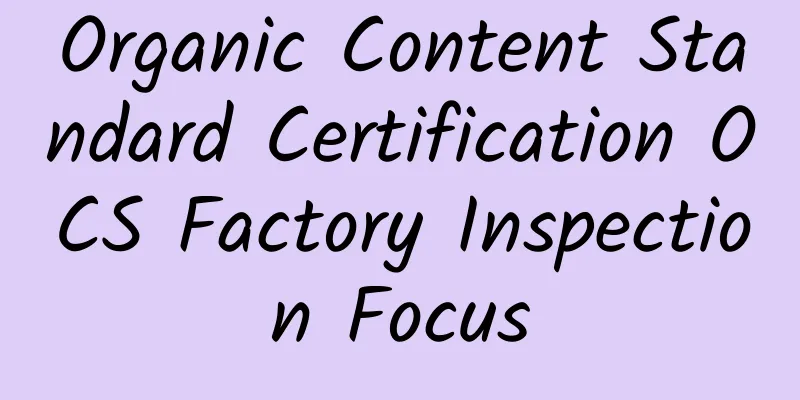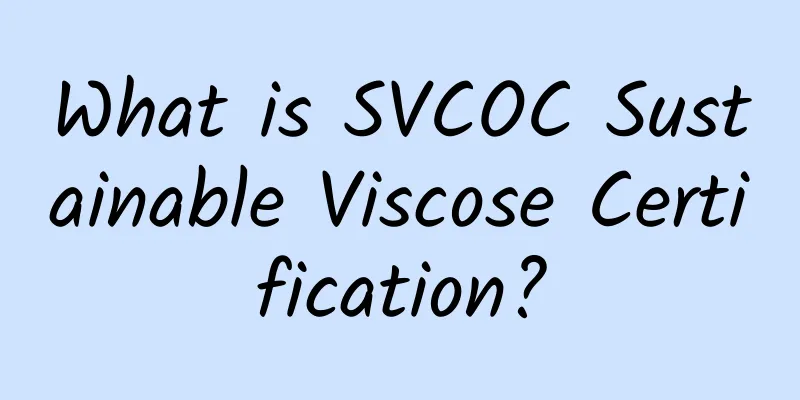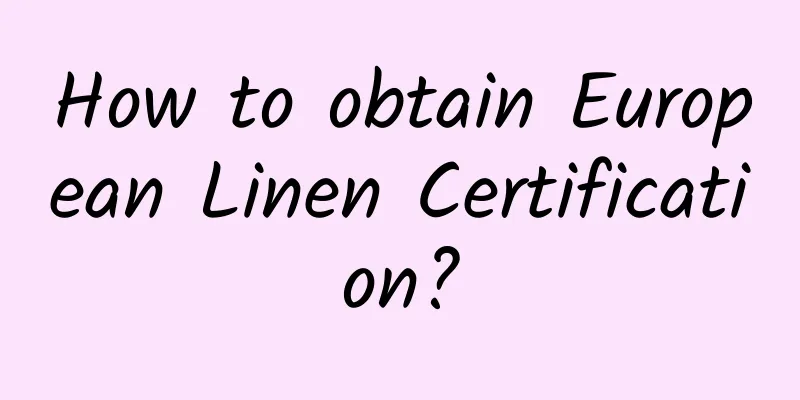Organic Content Standard Certification OCS Factory Inspection Focus

|
The organic content standard certification OCS audit includes document review and production site audit to determine whether the formulated documents are consistent with the actual site and whether they are correctly implemented. On-site inspection is an important way to evaluate the effectiveness of the organic management system. Through interviews with processing managers, workshop employees, and operators, it is verified whether the documents and records provided by the applicant are truly implemented in organic operations. For OCS, there are two certification levels, OCS100 and OCSBlended. The former requires at least 95% organic raw materials, and the latter requires at least 5% organic raw materials, which can be mixed with any other fiber raw materials. 1) Inspection scope: All processing procedures and facilities involved in the applied product will be reviewed. It is also necessary to inspect these places for packaging and labeling outside the processing site to ensure the integrity of the certified product. 2) Documentation: Confirm the risks to organic production and the limitations of the measures taken by the applicant, whether there is parallel production, and the effectiveness of the isolation measures for organic and non-organic production. 3) Personnel: For OCS standards, interviews should be conducted with at least the producer’s management personnel, quality manager, workers, and warehouse manager to determine the applicant’s understanding of organic standards, mastery and implementation of the organic management system, and compliance of organic production and processing with standards. Workers should be interviewed individually, away from their supervisors, to facilitate workers to provide true and detailed information. The interviewees should be no less than 3 people. 4) Product sampling During the on-site inspection, inspectors must consider product sampling. According to the requirements of the standard, if there is any suspicion about organic operations, samples can be taken and sampling documents must be filled out. 5) Input audit For the OCS standard, the main focus is on the proportion of organic ingredients. 6) Pollutant emission and energy management (not required by OCS) 7) Other matters that require attention during the inspection a. Summary accounting of the production and sales volume of certified products b) Status and verification of product and certification mark traceability system, packaging marks c) Verification of the corrections or corrective measures taken for non-conformities in the previous year. Do you have any questions about OCS factory inspection? Welcome to consult Chaowang customer service, we will give you professional answers and suggestions! |
<<: GRS certification requirements for supply chain
>>: What impact does GOTS certification have on the development of textile companies?
Recommend
Global recycling standard GRS factory inspection meets various customer requirements
The purpose of the "Global Recycling Standar...
Common medical and health problems and solutions during BSCI factory audits (I) Lack of first aid medicines in the first aid kit
Problem phenomenon: There is a lack of first aid ...
GRS factory audit checklist social responsibility
There are quite a lot of GRS factory social respo...
What is ShuaiShou.com? What services does ShuaiShou.com provide?
What is ShuaiShou.com? Shuaishou.com is a multi-p...
How to sell on eBay using Shopify?
eBay's mission is to make online shopping mor...
ICTI Industrial Fire Prevention and Emergency Preparedness Survey Guide
1. Emergency reporting information - Let employee...
WRAP certification official website system upgrade
According to the official notice issued by WRAP, f...
ISO14000 series standard features
The ISO14000 series of standards have the followin...
Suppliers and subcontractors in BSCI certification
Supplier/Sub-supplier Entities in a company’s val...
What is Rakuten Ebates? How to register for Rakuten Ebates?
What is Rakuten Ebates? Rakuten Ebates is an Amer...
OHSAS18000 system certification audit scope
Shanghai Chaowang is a company with 15 years of p...
What is Starbucks?
Starbucks, Chinese: 星巴克, is the name of an America...
How to be a competent corporate citizen in a harmonious society
Recently, the annual two sessions were held in Be...
The EU has included 10 substances of very high concern (SVHC) in its list
On September 1, 2014, the European Chemicals Agen...
Which issues in LI&Fung factory inspection need to be corrected immediately?
There are four levels of Li & Fung factory in...









